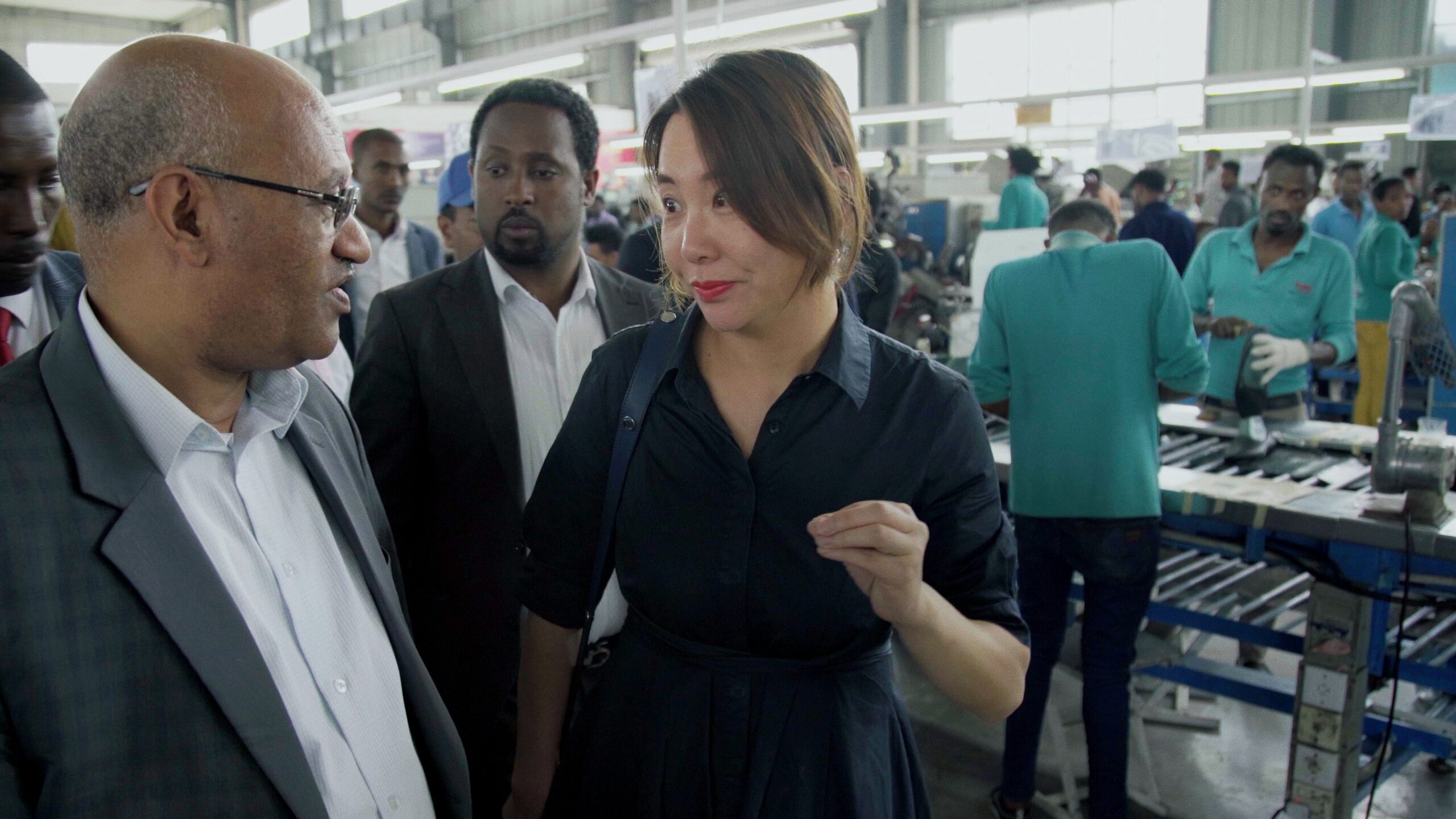New documentary on China-Ethiopia economic relations screens at Yale
On Tuesday, Yale anthropology professor Dr. Louisa Lombard hosted the co-directors of a new film about Chinese investment in Ethiopia for a screening and reception.

Courtesy of Hard Truth Films
The directors of a new documentary about Chinese investment in Ethiopia visited Yale Tuesday for an exclusive screening of their film, “Made in Ethiopia.”
The event was hosted by Louisa Lombard, an anthropology professor. Yale’s Inter-Asia initiative, the Program in Agrarian Studies and the Council on African Studies collaborated to bring career journalists Xinyan Yu and Max Duncan, the directors, to Yale.
“I feel like I had more of a historical understanding of Ethiopia, and this definitely gave me more context for what’s actually going on now,” Emiliano Gomez ’26 said in an interview after the screening.
From 2019 to 2023, the directors filmed in and around Dukem, a town in Ethiopia’s Oromia region. Dukem is the site of Eastern Industry Zone, a Chinese-owned “industrial park” — or factory — that produces items such as jeans and shoes. The film follows both the Chinese nationals running these factories and local Ethiopians whose livelihoods are altered by foreign industrialization.
The film primarily revolves around three women. One is Ma Futao, the deputy director of Eastern Industry Zone. Futao, who goes by “Motto,” has worked in Ethiopia for 14 years. Beti, a young Dukem woman who works on the floor of Motto’s factory, represents a generation of Ethiopians learning to embrace modernity and globalization. The agrarian way of life of Workinesh, a rural mother of six, is threatened by the rapid industrialization of Dukem.
In the middle of filming, COVID-19 broke out. Employees of Eastern Industry Zone were given two options: either take leave, or continue working while also living, eating and sleeping inside the factory. It was months before restrictions eased and workers could go home.
The screening attracted various members of the Yale community intrigued by the sector of international relations showcased by the documentary.
“I didn’t know much about Chinese involvement in Ethiopia,” Leya Dereje ’27, an Ethiopian-American student said. “So I thought it would be a good experience to learn more about it.”
The 91-minute screening was followed by a question-and-answer segment, in which the directors engaged with the audience.
One viewer criticized the film for chronicling negative elements of the factory’s culture, such as culture clashes and potential labor abuse, without offering remedies. He asked what the filmmakers thought the solution was.
Yu and Duncan responded that their aim in bringing the film to an academic audience was partly to open up that question to the viewers and ask them what the best way forward is.
“Is this the only pathway to prosperity?” Yu asked, referring to the Chinese model of industrialization that lifted millions out of poverty but came with social costs after Mao Zedong’s regime. “You come up with your own conclusion.”
One audience member asked the filmmakers if they believed the struggle between Chinese industrialists and locals was balanced. Much of the documentary chronicles Motto’s struggle with city officials to negotiate land ownership. At one point, she breaks down in tears over a business deal falling through. On the other hand, Workinesh’s youngest daughter Rehoboth holds back tears because the future of her family is uncertain.
“It’s not a fair fight if you’re up against the forces of capitalism,” Duncan said.
“Made in Ethiopia” will continue to screen at various locations across the Northeast during October.







